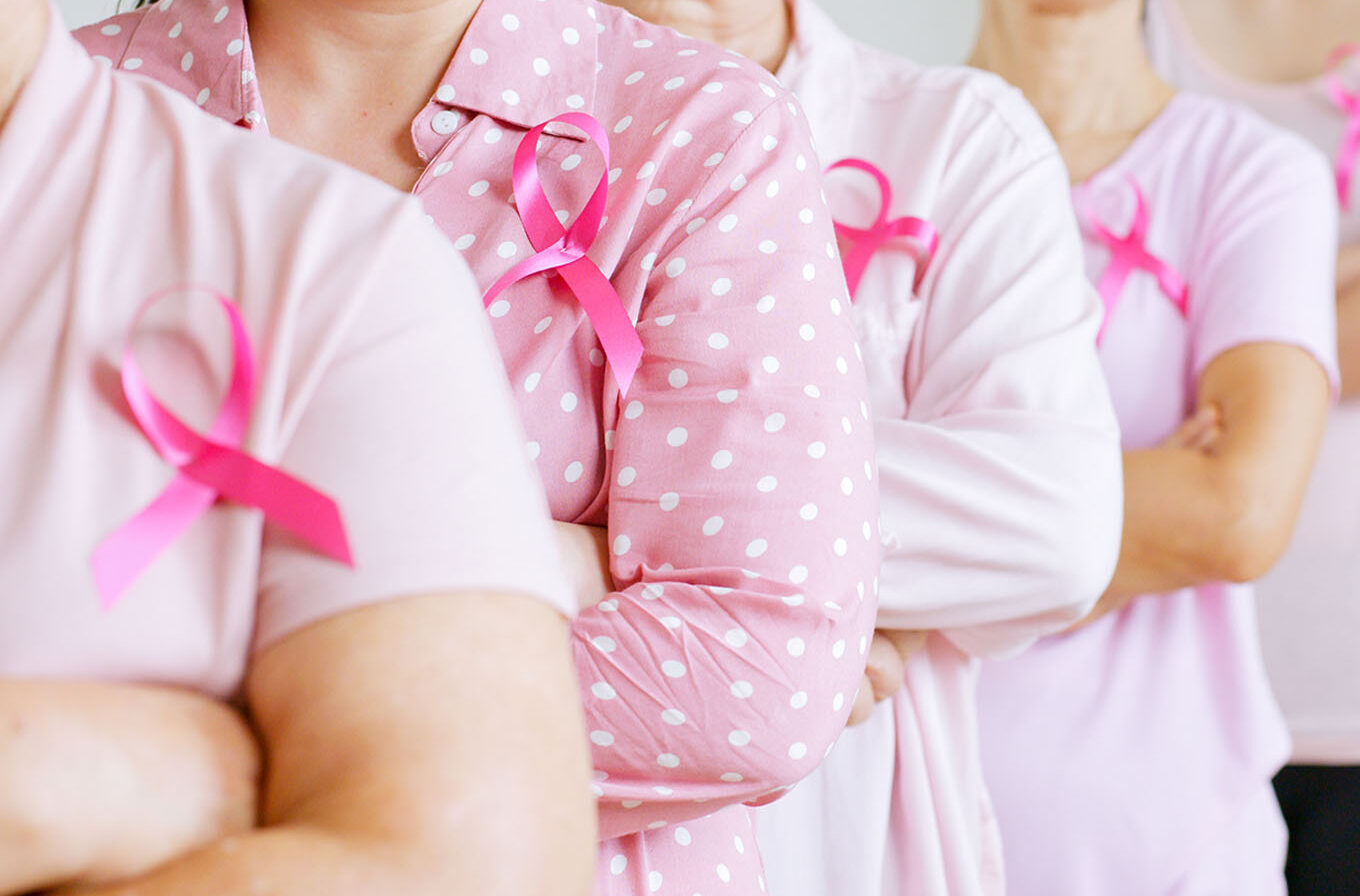Important Note: The information provided is of a general nature only and should not be substituted for medical advice, nor used to alter medical therapy. It does not replace consultations with qualified healthcare professionals to meet your individual needs. Always speak to your GP or Primary Health Care provider before taking any medications, receiving a vaccination, or if you feel unwell.
Take the time to learn the facts
This time of year provides an opportunity for us all to focus on breast cancer and its impact on those affected by the disease in our community.
If you’re an older woman, it’s important that you get to know your risks, as breast cancer remains the most common cancer among Australian women (excluding non-melanoma skin cancer). And, whilst breast cancer is uncommon in men, most of the (approximately) 150 men who are diagnosed with breast cancer each year in Australia are over the age of 50. Transgender and gender-diverse people can also get breast cancer. A transgender woman taking medication to lower male hormones and boost female hormones may have an increased risk of developing breast cancer.
As our population ages, we are also likely to see a gradual increase in the number of Australian women and men diagnosed with breast cancer each year, so it’s important that we all remain diligent and aware of the causes, signs and symptoms of breast cancer – the more we know, the better our chances of preventing and surviving this disease.
Whilst unfortunately there is no proven method of preventing breast cancer, the risk of breast cancer can be reduced by lowering alcohol consumption and maintaining a healthy weight and lifestyle.
Causes, symptoms and tests for breast cancer are the same, or very similar, for both women and men. We have outlined some of the key information below – full details can be found online at www.cancer.org.au, Freecall 1800 624 973, or via www.breastcancerinmen.canceraustralia.gov.au.
CAUSES:
- increasing age
- family history of breast cancer
- high levels of oestrogen
- some testicular disorders (in men)
- some lifestyle factors such as drinking alcohol, being overweight and lack of physical activity can also slightly increase your risk.
SYMPTOMS:
Finding breast cancer early provides the best chance of surviving the disease. Remember you don’t need to be an expert or use a special technique to check your breasts.
Changes to look for include:
- a new lump or lumpiness, especially if it’s only in one breast
- a change in the size or shape of your breast
- a change to the nipple, such as crusting, ulcer, redness or inversion
- a nipple discharge that occurs without squeezing
- a change in the skin of your breast, such as redness or dimpling
- an unusual pain that doesn’t go away.
Most changes aren’t due to breast cancer, but it’s important to see your doctor without delay if you notice any of these changes.
TESTS for diagnosing breast cancer:
- Physical examination: If you notice any breast changes or a mammogram shows something suspicious, your GP will perform a physical examination, checking both breasts and the lymph nodes above your collarbone and above your arms. Your GP will also ask about your medical history and any family history of breast cancer
- Mammogram: a low-dose x-ray of the breasts
- Breast ultrasound: a painless scan using soundwaves to create a picture of your breast
- Biopsy: where a small sample of tissue is removed and examined under a microscope by a specialist.
Screening:
Women aged between 50 and 74 are automatically invited for free screening mammograms via the Breast Screen Australia Program. Women aged 40-49, and 75+, are also eligible to receive free mammograms, however they do not receive an invitation to attend. At this time, there is no free screening program in place for men, so men should be just as diligent, if not more, than women in regularly checking their breasts.
You can find out more about screening on the Department of Health and Ageing website: www.health.gov.au or through Breast Screen Australia:
Phone 132050.
Websites:
NSW: www.breastscreen.nsw.gov.au,
QLD: www.breastscreen.qld.gov.au,
VIC: www.breastscreen.org.au.
Treatment:
If you are diagnosed with breast cancer, there are many treatment options that vary depending on your diagnosis. Please discuss these options with your specialist, GP or primary healthcare provider.
Take the time to discover what you need to know about breast awareness, and share this important information with your family, friends and colleagues.
Source(s): The Department of Health and Ageing, Cancer Council, Breast Screen Australia

